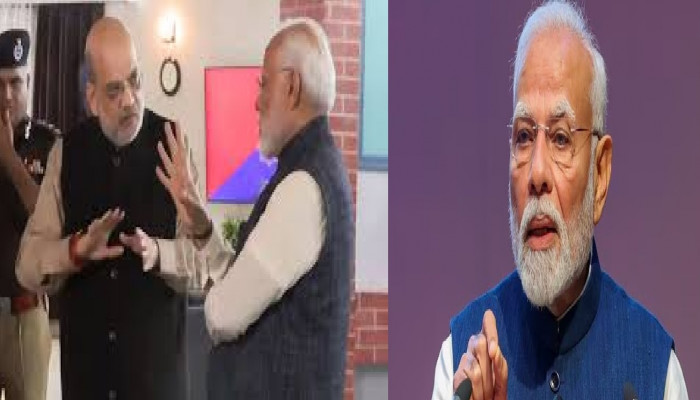PM Modi dedicates new criminal laws to the nation, marks a milestone in India’s judicial reforms
- In Reports
- 05:41 PM, Dec 03, 2024
- Myind Staff
Prime Minister Narendra Modi on Friday formally dedicated three transformative new criminal laws to the nation—Bharatiya Nyaya Sanhita, Bharatiya Nagarik Suraksha Sanhita and Bharatiya Sakshya Adhiniyam. Speaking at a ceremony in Chandigarh, he hailed the implementation of these laws as a significant step towards fulfilling the ideals envisioned in the Indian Constitution, which is celebrating its 75th anniversary.
“The identity of Chandigarh is associated with Maa Chandi, a symbol of truth and justice,” PM Modi said, noting that this philosophy inspired the creation of the Bharatiya Nyaya Sanhita and Bharatiya Nagarik Suraksha Sanhita. Calling this moment “illustrious,” he emphasised that these laws align with India’s aspiration of becoming a developed nation.
The Prime Minister thanked the Supreme Court, 16 High Courts, Judicial Academies and civil society for their collaborative efforts in drafting the laws. “This Nyay Sanhita was made with the contributions of many experts and deliberations on the needs of a modern nation. It is comprehensive and futuristic,” he said, adding that the laws incorporate lessons from seven decades of judicial challenges.
PM Modi explained the need to move away from colonial-era laws like the Indian Penal Code, introduced in 1860 and the Criminal Procedure Code. These laws, he said, were designed to oppress and exploit, reflecting a “mindset of slavery” that hindered India’s progress. “With the implementation of these new Nyay Sanhitas, the country takes another step toward shedding this colonial mindset,” he added.
The Prime Minister outlined key reforms under the new laws, such as time-bound trials for heinous crimes, including mandatory verdicts within 45 days in rape cases. “Citizen First is the mantra of these laws,” he asserted, highlighting the legalisation of Zero FIRs, mandatory sharing of FIR copies with victims, and restrictions on arbitrary detentions by police.
He also praised new provisions for community service in minor offences and reforms to protect first-time offenders. “These laws ensure justice with sensitivity and humanity,” he said, noting that thousands of prisoners imprisoned under outdated laws have already been released.
PM Modi emphasised the laws’ role in curbing corruption, speeding up trials, and encouraging foreign investment by alleviating fears of delayed justice. He also celebrated technological advancements like e-Summon Portals and the integration of digital evidence.
The Prime Minister urged citizens, officials, and state governments to familiarise themselves with the new laws and ensure their effective implementation. “The strength of any country lies in its citizens, and the law is the strength of the citizens,” he remarked.
Concluding his address, PM Modi said, “The more effectively these Nyay Sanhitas are implemented, the brighter the future of our children will be. Together, let us build a stronger and more just India.”
The event was attended by Punjab Governor and Chandigarh Administrator Shri Gulab Chand Kataria, Union Home Minister Amit Shah, and other dignitaries.
Union Home Minister Amit Shah termed the day a “golden day for the Indian criminal justice system.” He noted that Chandigarh was the first unit to fully implement the new laws, with police, judiciary, prosecution, jails, and the Forensic Science Laboratory (FSL) all working in sync.
“Today is a golden day for the Indian criminal justice system – as Chandigarh has become the first unit to fully implement all three new criminal laws. These laws are meant to deliver justice, not punishment,” Shah said. He also emphasised that the older laws—the Indian Penal Code (IPC), Code of Criminal Procedure (CrPC), and Evidence Act—were created in the British Parliament to protect British rule, not the Indian people.
“The laws that PM Modi has brought are made by Indians, for Indians,” he said, adding that the new laws will be implemented across the country within three years.
Shah highlighted key reforms, including the creation of a new post, the Director of Prosecution, to tackle corruption, and the removal of “sedition” (rajdroh) from the legal framework, replacing it with “treason” (deshdroh). “To tackle and reduce corruption, a new post has been created. Also, the term 'rajdroh' has been replaced by 'deshdroh' in the laws,” he explained.
He also shared the progress under the new laws: “More than 11 lakh FIRs have been registered, and within just four months, 9,500 cases have received their judgments.”







Comments